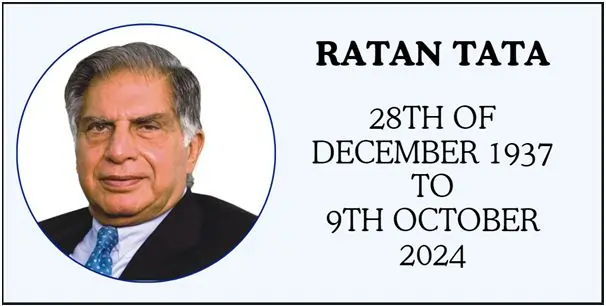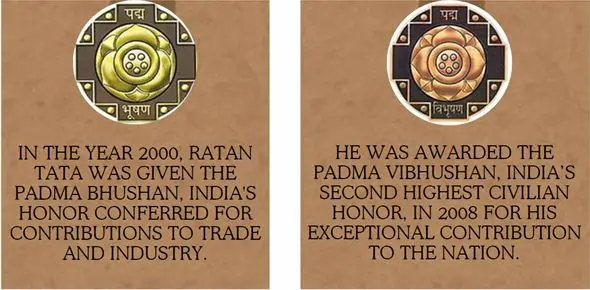
Ratan Tata, among the most respected industrial leaders not only of India, but of the world, is credited with exemplary leadership traits and outstanding contribution to India’s economic progress and social uplift. Starting as the head of Tata Sons, the oldest and most significant Tata Company, and Ratan Tata has built up the Tata Group which is one of the largest and oldest companies in India. His life and working practice, his charity endeavours and the organisations he founded have created a great impact to India and globe.
Early Life and Education
Ratan Naval Tata was born on 28th of December in 1937 to Naval Tata, in Mumbai, India. He is the great grandson of Jamsetji Tata, the elder industrialist of India and the founder of the Tata group. Ratan Tata has his parents, Naval Tata and Sonoo Tata, underwent a divorce when he was only ten years old. Despite his tough childhood, Ratan Tata quietly proved to be a meritorious student; he early on had inclinations towards engineering and commerce.
Ratan Tata’s early learning was done at Campion School in Mumbai and Cathedral & John Connon School. He then joined Bishop Cotton School of Boys in Shimla and later went to USA for higher studies. Ratan Tata completed his education in architecture with structural engineering from the technical university of Cornell in 1962. He later went to the Advanced Management Program at Harvard Business School which he completed in 1975.
Career at Tata Group
Ratan Tata joined the Tata Group in 1962, commencing his career as a trainee operative on the production line at Tata Steel in Jamshedpur. Started as an apprentice and got practical experience on the sundry aspects of steel industry. The result was that co-workers and workers felt comfortable with him and accorded him the respect.
Ratan Tata got this post in 1991 when he became the Chairman of Tata Sons, the source of the Tata Group. He had led the Tata Group through discrete metamorphosis ably helping it to grow tremendously. For two and a half years, Ratan Tata was actively engaged as the chairman of the group and he intervened in the management approach by pursuing the goals such as modernisation, improving the management techniques and increasing the innovation as well as internationalisation of operations.
Main Mergers and Organic Growth
- Tata Motor's Acquisition of Jaguar Land Rover (JLR): Tata Motors bought Jaguar and Land Rover in 2008 and Ford Motor Company from Britain as a luxury car maker. This billion dollar acquisition gave Tata Motors a global identity in the automobile market and may well be said to have put the Tata Group firmly on the world map.
- Tata Steel's Acquisition of Corus: Tata Steel made its largest foreign acquisition in 2007 when it bought the Anglo-Dutch steel company Corus Group for $12 billion. Through this acquisition Tata Steel became the fifth largest steel maker company in the world and proved the growing potential of India as a major players in the international market of steel industry.
- Tata Consultancy Services (TCS): During the regime of Ratan Tata, TCS evolved to become a world-class IT majors in service and consultancy. TCS played a great role in the future making of India as an IT and software destination for the world.
- Tata Tea's Acquisition of Tetley: Tata Tea paid £119 million for the British brand Tetley in 2000 to make it as one of the largest tea producers in the Globe. Some of the acquisitions made by the Tata group in the past were crucial in investments and this acquisition provided the Tata group with a signal to expand its international operations.
Innovations and Contributions
- Tata Nano: Among all the leadership activities that Ratan Tata undertook, the Tata Nano project was most strategic due to the development of the world’s cheapest car. The Tata Nano was launched in 2008 with the objective of providing inexpensive transportation to millions of individuals in the country. Yet, the Tata Nano had been a gradual failure in the market; it still stands out as a demonstration of economy and innovation in car designing.
- Social Responsibility and Ethics: Mr. Ratan Tata emphasized the importance of Corporate Social Responsibility and ethical business practices. During the management of Tata there was no change in the group’s philosophy of contributing towards different social causes and actively participating in community development. The Tata Trusts, which own a major stake in Tata Sons, support educational, health-care, agriculture, and arts and culture projects.
The Study of Philanthropy and Social Responsibility
- Education: Ratan Tata has donated to commerce educational institutions including his university, the Cornell University and the Indian Institute of Technology or IIT. He has also supported scholarships, research and physical development in these institutions.
- Healthcare: Ratan Tata has made his contributions in health causes such as cancer research, hospitals and medical education. The Tata Memorial Centre’s Tata Memorial Hospital in Mumbai is perhaps one among the premier sites specializing in the overall treatment and cure of cancer across the country with backing from Tata Trusts.
- Rural Development: Ratan Tata has personally endorsed several causes including ones which provide sustainable economic opportunities for the rural poor. Currently, some of the social issues on which the Tata Group has invested include sustainable agriculture, water and rural electricity.
- Disaster Relief: Mr. Ratan Tata has been instrumental in the dispatching of various Consignments to victims of disasters both National & International. He has been included sponsor and source of support amid disaster incidences for instance calamities like the earthquake and floods.
Legacy and Recognition
Ratan Tata The chairman of Tata group of company, has been honoured and rewarded many times due to his leaderships and also his philanthropic activities.

- Honorary Doctorates: Ratan Tata holds honorary doctorates from many universities among which are Cornell University, University of Cambridge and the University of New South Wales.
- Global Recognitions: Ratan Tata has received many global honours for his achievements in the business fraternity and charitable organisations. He has been hailed on Time magazine’s most influential individuals in the world and has been awarded several internationals leadership and achievement awards.
Continuing Influence
Ratan Tata has been the chairman of Tata sons up to the year 2012 and therefore he was among the most renowned business tycoons. He was always being engaged in philanthropy and sit in different boards of organizations. One cannot undermine taking as the social, economic and even the technological face of India and the Tata Company on an influential sum from Ratan Tata. He has taken company and led it to become a world-class business conglomerate and has worked for social integration through philanthropy. Here are some key contributions Ratan Tata has made for the growth of India:
Economic Contributions
- Industrial Growth and Global Expansion: During the leadership of Ratan Tata, the Tata Corporation has diversified its business not only within India but outside India as well; the Tata corporations bought Jaguar Land Rover, Corus Steel, and Tetley Tea. The acquisitions did not only establish the Indian companies on a global map, but also have brought new technologies and best practices to India. Through integration of global standards it has been seen that Indian industries has gained competency to compete in the global market.
- Innovation and Entrepreneurship: As quoted by Ratan Tata, innovation was deemed by him as one of the most effective strategies of business development. The Tata Nano designed to offer basic, affordable transportation was another example of Indian engineering. While facing market issues the Nano showcased that India could indeed bring innovation at low costs. Further, various businesses organized under Tata group, for instance, Tata Consultancy Services (TCS), has led the Information technology revolution in India besides creating employment, and greatly boosting the economy.
- Infrastructure Development: It has been responsible for creating the Tata group’s important infrastructure asset like steel plants, power generation units, and IT parks. Tata Tea, Tata Steel, Tata Power, Tata Motors – these [all Giant Indian companies] have contributed to the industry and manufacturing of the country and have supported the strong economic base of the country and given employment to many people.
Social Contributions
- Education and Skill Development: He has given his support to many educational institutions such as the IITs, and international universities. The scholarship and research programmes that has been provided by the Tata group has benefited so many students and the opportunity to get education has boost the knowledge sector of the Indian economy.
- Healthcare Initiatives: He has focused on funding health care projects via the Tata Trusts aims to improve public health. One of the most well-known cancer treatment facilities in Mumbai is the Tata Memorial Hospital, which also offers affordable care to thousands of patients. Efforts towards improvement of rural health, sanitation and nutrition care have also played an equally important role in trimming down the health inequalities in India.
- Rural Development: Ratan Tata works actively to more than just carry forward the Tata group’s values into the future but alsoplan to take up challenges posed to the Indian economy major of which are linked to agriculture, water supply, and livelihood. Some of the examples of socially responsible finished products are the Tata Water Mission which has supplied the rural population with safe drinking water and programs of sustainable agriculture adding value to the farmer’s yields.
Technological Advancements
- Promoting Research and Development: Ratan Tata has always been vocal about supporting research in development and has helped develop technology across industries. Tata companies have undertaken many technologies as well as know-hows which include renewable power, advanced materials among others. Strategic partnerships with international research institutions have led to enhanced sharing of knowledge and new development.
- Digital Transformation: Many Tata Group companies have made expanding efforts to adopt new digital technologies during Ratan Tata’s tenure as chairman. TCS, for example, has led the way in digital transformation, bringing in global IT services and solutions. India now occupies a crucial position in the global information technology market as a result of this convergence.
Philanthropy and corporate social responsibility
- Ethical Business Practices: Ratan Tata has always set the best practices of corporate governance and ethical business practices. The Tata group has especially demonstrated a high level of integrity, transparency and social responsibility among the big Indian companies. This was in compliance with ethical principles that activities such as the Tata Code of Conduct undertake to promote within the business world.
- Environmental Sustainability: In particular, he supports environmental protection and now actively encourages the use of environmental technologies and green energy. Wind and solar projects by Tata Power help India to achieve its target of attainable renewable energy level. The strategies that the amendment aims to do for the Tata Group corresponds to international attempts at preventing climate change and preserving resources.
In conclusion, a number of aspects associated with Ratan Tata show that he has impacted the generation of the current economy, social and technology of India. This has brought industrial development to spearhead Tata Group, establish global operations and improve on innovation. He has embraced philanthropy in order to transform communities, enhance health and educate society. Ratan Tata’s legacy in India shows us how committed he was to create a stronger and richer nation.